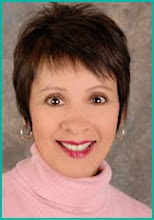Engaged couples who are happy together may not see the relevance of premarital counseling. However, those couples who have an easy courtship are often least prepared for the challenges of married life. In contrast, couples who experience problems during courtship usually develop patterns for resolving their differences. Unfortunately, these patterns are often dysfunctional.
Couples are often referred for premarital counseling by the clergy who will be officiating at their wedding. These couples usually enroll in a premarital counseling workshop or seminar offered through their church or synagogue. Others seek out public workshops to learn about marriage. These workshops offer an introductory exploration of common marital issues such as money, sex, in-laws, household responsibilities, religious beliefs, etc.
However, after more than thirty years of treating couples in all stages of relationship, I’ve concluded that emotional and psychological knowledge of one another is a necessary prerequisite for successful marriage. Conflicts about money, sex, child rearing, infidelity and a host of other issues are often symptoms of deeper individual or marital problems. Good premarital counseling and psychotherapy addresses both the symptoms and the underlying causes of these difficulties.
Good premarital counseling is a fully engaging experience. It requires each person to examine and address their own issues and to expand their thinking and actions in order to accommodate their partner’s needs and feelings. The best premarital counseling and psychotherapy builds relational competence. It helps couples learn to communicate effectively, acquire skills in conflict resolution, deepen intimacy, build empathy, strengthen emotional bonds and establish a strong foundation for the future. In addition, good premarital counseling helps each person develop greater self awareness and a deeper emotional understanding of their partner. It also helps couples gain insight into their relationship’s dynamics and improves their ability to work with these dynamics to build and preserve emotional intimacy and the long term health of their relationship.
Psychological and emotional understanding of one another at a deep level takes time. This is not something that can be accomplished in a weekend or multi-week group seminar. Unfortunately, many couples are unwilling to engage in this work until after they have started to experience problems. By then it is much more difficult to alter the patterns of interaction that have been established in the relationship. In addition, there may be serious problems with trust based on disappointing experiences.
The best time to begin premarital counseling is as soon as you and your partner know you want to get married. Most couples seek premarital counseling prior to and during their engagement. Many continue to be involved in counseling and psychotherapy through the first year of marriage. This is the optimal approach as there are many changes that occur in the months leading up to and through the first year of marriage.
It takes bravery to be willing to examine yourself, your partner and your relationship. There is always the risk that you will uncover something you can’t accept or don’t want to live with. You may discover that your values, lifestyle preferences or interactional dynamics are too difficult to navigate. But you may also fall more deeply in love with your partner. You may appreciate them more. You may develop greater empathy and compassion and respect for their individuality. And you may experience greater confidence in your ability to be good partners to one another.
Marriage is a complex relationship that deserves careful thought and reflection. The quality of your marriage has the power to impact your day-to-day happiness and the happiness of your children. While there are no guarantees, premarital counseling and psychotherapy are the best safeguards I know for building and preserving a healthy marriage.
Copyright Johanna Nauraine, 2010
Johanna Nauraine is a psychotherapist in private practice. She specializes in premarital, marital and divorce therapy, infertility, addictions and career coaching. Read her relationship articles at: http://johannascouch.com/
